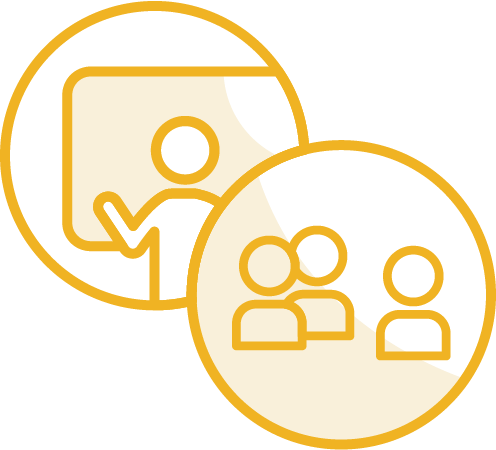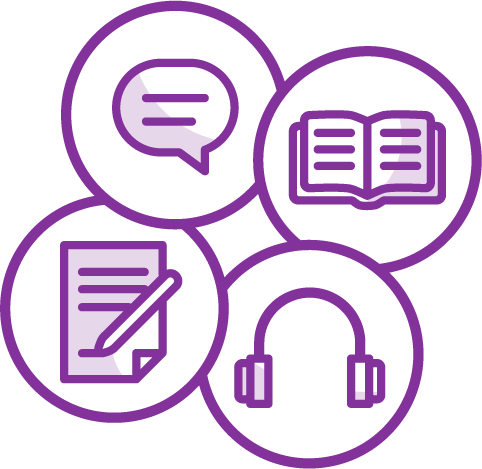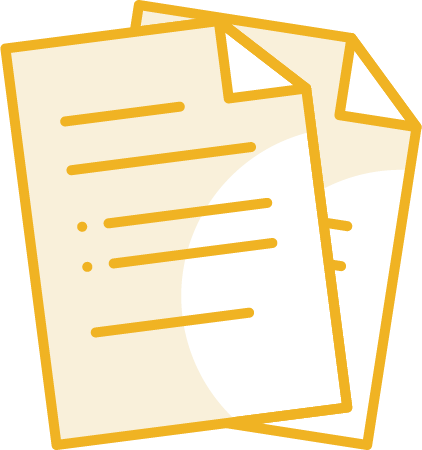 Corps Member Toolkit
Corps Member Toolkit
BetterLesson is here to support you as you embark on your career in education as a teacher leader. In the sections below, we’ve curated resources that align with your TFA Corps Member Roadmap and could be beneficial to any teacher in the first few years in the classroom.
BetterLesson Strategies
BetterLesson and Teach For America are united in their commitment to equip educators with the tools and knowledge necessary to create a meaningful and lasting impact on student achievement. The resources included below align with Teach for America’s mission and values.
Supporting Multilingual Learners
Pre-Teaching to Support Content Mastery - Level the playing field by introducing content prior to the lesson
Comprehensible Input: Teaching Targeted Vocabulary - All teachers are teachers of vocabulary, they just need the tools in order to successfully do so
Using Rhythm and Music to Teach Language and Content - Supports students to build their language and content knowledge by engaging with rhythm and music
Tiered Activities for Early Elementary English Learners - A planning process that sets all students up for success in progressing toward grade level standards
Supporting Students with Disabilities
Fill in the Gaps - Fill in the gaps supports students to review assessment data and set goals for improvement over two days in which they work to fill the gaps
Mild, Medium and Spicy Strategic Grouping - Strategic groupings and appropriate learning activities support student mastery
Self-Regulation Strategies - Students use self-regulation strategies like mental breaks, body and movement breaks, fidgets, and self-talk to maximize their learning
Differentiated Lesson Planning - Educators can use these templates to plan for differentiated instruction
Student-Centered Literacy
Anchor Charts - Students and teachers will use anchor charts to make thinking, learning, and expectations visible
Literature Circles and Book Clubs - Students will engage is student-led small group discussion around a selected text
Engaging in Close Reading - Students will use close reading strategies to develop their ability to independently read complex text with proficiency
Claims-Evidence-Reasoning Writing Framework - Students build their writing skills by using the CER Writing Framework to support claims with evidence and reasoning
Student-Centered Mathematics
5 Practices for Orchestrating Productive Mathematical Discussions: Anticipate, Monitor, Select, Sequence, Connect - Use Anticipate, Monitor, Select, Sequence, and Connect to plan, organize, and facilitate productive mathematical discussions
Three Reads: Close-Reading Protocol for Responding to Questions or Solving Problems [MLR 6] - Three Reads is a close-read protocol used to help students understand and break down complex problems or questions into logical sequences
Stronger and Clearer Each Time [MLR 1] - Several quick structured discussion opportunities help students revise and refine their ideas, making them stronger and clearer each time
2,4,6,8 Collaborative Problem-Solving Structure - Support students to engage in independent and collaborative thinking to effectively problem solve
Building Relationships with Your Students
I Wish My Teacher Knew - In order for students to enjoy a rich learning experience, they need to be known by their teachers
Windows and Mirrors - Building empathy and perspective for both you and your students
Creating an Inclusive Learning Environment - Every student deserves to learn in an environment that is safe, accepting and inclusive allowing them to thrive
Charting Positive Strengths to Build Relationships - A simple system to increase communication and build trust between educators and students
2x10: Building Positive Relationships with Students - This strategy supports you to build positive relationships with students who may be disconnected or exhibiting challenging behaviors
Check In Check Out - A regular check-in/check-out routine can help build teacher student relationships and promote meaningful learning
Helping Students Connect to Themselves and Others around Them
Mindfulness Techniques - Embed mindfulness practices into the classroom to help students focus and relax
Thresholding to Greet Students at the Door - Greet students as they enter your classroom to build relationships and provide consistency
Emotional Thermometer for Self-Regulation - The Emotional Thermometer helps students identify, name, and reflect on their emotions
Restorative Circles - This move is used to build community and address any community issues
Emotion Check-ins - Incorporating frequent emotion check-ins with students builds greater self-awareness
Universal Design for Learning
Choice Boards - Choice boards give students autonomy and choice in their learning while allowing teachers to differentiate, observe, and assess in real time
Entry Points - Ignite student enthusiasm for new learning by providing exciting entry points
Visual Retelling - Retell stories through sequenced pictures or objects to support comprehension
Assessment Menu - Give students choice in how they are assessed by creating a joyful cafe-style approach to assessment
See more at our Universal Design for Learning Strategy Guide
Differentiation
Mild, Medium, and Spicy Strategic Grouping - Strategic groupings and appropriate learning activities support student mastery
W.I.N. Whatever I Need to Practice - Try the W.I.N. (Whatever I Need) To Practice strategy to give students a structured approach to choice in what they work on in class
Marzano's Self-Assessment Rubric - Provide students with clear criteria to self-assess effectively
Fill in the Gaps - Fill in the gaps supports students to review assessment data and set goals for improvement over two days in which they work to fill the gaps
See more at our Differentiation Flowchart
Early Childhood Education
Creating and Implementing a Family Partnership Plan - Forming authentic, trusting relationships with your students' families is a foundational part of building an inviting learning community
Including Instruction in Play Based Experiential Learning - Play Based Experiential Learning is an opportunity for young children to learn through exploration and discovery
Dialogic Reading - An evidence-based interactive shared-reading practice that teachers can use to enhance children’s oral language development
Supporting Peer Social Interactions for Early Learners - Peer social interactions at an early age is crucial to early learning and development
BL Connect Courses are brief 1-hour self-paced online learning experiences. Our course library in BL Connect gives you access to practical, research-based learning opportunities to focus on topics that interest and inspire you as an instructional leader in your classroom.
You have access to our full course library, but here are some courses we’d suggest to start. Make sure you’re signed in to the BetterLesson Lab, then click the links below to view the course. Click the “Get Started” button to enroll.
Foundations of Teaching
These courses are designed to support the needs of early career teachers.
Preparing Routines and Procedures for the First Weeks of School - NEW!
Gain an understanding of classroom routines and procedures, the reasons to use them, and how to implement them.
Strategies for Supporting Engagement for All Students - NEW!
Gain quality tools and resources to engage all learners through accessible and relevant instruction and learning tasks.
Student Centered Social Studies Planning and Instruction - NEW!
Gain strategies and tools for student-centered planning and instruction in social studies classrooms. This course is designed for early career social studies teachers.
Student Centered Social Studies Classroom Culture - NEW!
Learn about developing and promoting a student-centered culture in social studies classrooms. This course is designed for early career social studies teachers.
Student Centered Social Studies Classroom Assessment - NEW!
Learn about the importance and implementation of student-centered assessments in social studies classrooms. This course is designed for early career social studies teachers.
Student Centered Science Classroom Planning and Instruction - NEW!
Gain strategies and tools for student-centered planning and instruction in science classrooms. This course is designed for early career science teachers.
Student Centered Science Classroom Culture - NEW!
Learn about developing and promoting a student-centered culture in science classrooms. This course is designed for early career science teachers.
Student Centered Science Classroom Assessment - NEW!
Learn about the importance and implementation of student-centered assessments in science classrooms. This course is designed for early career science teachers.
Using Classroom Values to Develop Culture
Learn how to leverage the power of values-based classroom culture to create the conditions for engagement and learning.
Planning for Engagement
Plan for student engagement and explore some important categories to integrate into learning such as collaboration, wellbeing, and discourse.
Using Backwards Design to Plan Effective Units
Build awareness of how to use the principles of backward design to effectively plan a set of lessons that are aligned to a specific learning target or content standard.
Establishing Routines and Procedures
Build an awareness of the significance routines and procedures have for learners and understand how to establish classroom systems that support achievement and cultivate a healthy and inclusive environment.
Communicating and Engaging with Families
Identify categories of family and caretaker engagement and communication, and review real life examples for new ideas for how to strengthen the bonds between school and home.
Supporting Students with Disabilities
Planning and Implementing High Quality Instruction for Students with Disabilities - NEW!
Learn how high-leverage practices such as Universal Design for Learning and Differentiation can support high-quality instruction for students with disabilities and provide greater access for progress as well as mastery. This course is designed for early career teachers supporting students with disabilities.
Promoting Asset-Based Teaching and Learning for Students with Disabilities - NEW!
Learn about asset-based practices like integrating students’ funds of knowledge and relationship building to establish a learning environment that embraces and celebrates differences as strengths. This course is designed for early career teachers supporting students with disabilities.
Unpacking IEPs
Build foundational awareness of IEP contents and how they can impact the ways teachers support students.
Including Families in IEPs
Learn about practices for facilitating IEP meetings where families feel included and heard.
Student Self-Advocacy
Build awareness around what it means for students to advocate for themselves and explore ways of teaching these skills.
Understanding Accommodations and Modifications
Explore the differences between accommodations and modifications, build understanding of when to use each, and look at a tool that may support with classroom implementation.
Supporting Multilingual Learners
Planning and Implementing High Quality Instruction for English Learners - NEW!
Explore the foundational practices to create an inclusive and effective learning environment for English learners and all students. This course is designed for early career teachers supporting English learners.
Promoting Asset-Based Teaching and Learning for English Learners - NEW!
Gain strategies to focus on asset-based approaches and effective language development techniques, gaining practical insights and tools to incorporate these strategies into your instruction. This course is designed for early career teachers supporting English learners.
Universal Design for Learning
Introduction to UDL Principles
Gain a basic awareness of Universal Design for Learning and how UDL principles can support with accelerating student growth.
Universal Design for Learning: Engagement
Look at ways of using Universal Design for Learning practices to support student engagement.
Universal Design for Learning: Representation
Look at ways of using Universal Design for Learning practices to provide multiple means of representation by providing options in how information is shown, supporting language and symbol understanding, and supporting student comprehension.
Universal Design for Learning: Action and Expression
Look at ways of providing multiple means of action and expression in our work with students to create a more universally accessible classroom experience.
Helping Students Connect to Themselves and Others around Them
Understanding and Teaching Self-Management
Develop a deep understanding of self-management by exploring the role teachers can play in helping students learn self-management.
Skillsets to Center Yourself in the Classroom
Build an understanding of what self-awareness is, when and how it shows up, and leave with at least one specific strategy or skillset that you could try in the classroom to support your students in developing self-awareness.
Supporting Students to Make Responsible Decisions
Learn about the value and importance of responsible decision-making, while also learning how to teach this skill to learners.
Understanding and Teaching Social Awareness
Define social awareness, explore strategies that you could try in the classroom to support your students in developing social awareness, and leave with a challenge to intentionally model social awareness strategies for students.
Developing Relationship Skills
Define relationship skills, explore examples and strategies, and leave with at least one specific strategy or technique to try in the classroom that will support your students in developing relationship skills.
Learning to Celebrate Differences Using Kikori
Learn about the importance of celebrating differences in classroom communities, explore a variety of SEL activities through Kikori, and make a plan for integrating one of those activities into an upcoming lesson.
Math & ELA Courses
Teaching Perseverance in Mathematics
Explore the factors that influence students' beliefs about math and themselves as mathematicians, and identify strategies that create positive math learning experiences.
Science of Reading 101
Define the term Science of Reading, explore the major models of Science of Reading, and consider their instructional implications. =
High Frequency Word Instruction: Grades K-2
Define high frequency words, explore the progression of Fry and Dultch high frequency word lists from K-2nd grade, and engage in research based activities and routines that support high frequency word acquisition.
TFA Webinar - Developing Multiple and Varied Checks for Understanding
4/15/2025 Webinar Recording
Materials: Agenda, Slide Deck

TFA Webinar - Targeted Individualized Support
3/25/2025 Webinar Recording
Materials: Agenda, Slide Deck

TFA Webinar - Using Differentiation Techniques to Make Learning Accessible
2/26/2025 Webinar Recording
Materials: Agenda, Slide Deck

TFA Webinar - Using Data to Differentiate Small Groups
1/28/2025 Webinar Recording
Materials: Agenda, Slide Deck

TFA Webinar - Varying Instructional Delivery for Engagement
11/12/2024 Webinar Recording
Materials: Agenda, Slide Deck

TFA Webinar - Planning Process for Student-Centered Lessons
10/29/2024 Webinar Recording
Materials: Agenda, Slide Deck
TFA Webinar - Cultivating an Engaging Classroom Culture
9/24/2024 Webinar Recording
Materials: Agenda, Slide Deck

TFA Webinar - Designing Routines and Procedures to Empower Students
8/27/2024 Webinar Recording
Materials: Agenda, Slide Deck

Strengthen Classroom Community throughout the Entire School Day
This webinar discusses the importance of strong learning communities and practices that can support their creation and continuation in partnership with Kikori, a research-backed platform for social-emotional learning activities.

Cultivate a Growth Mindset by Developing Executive Functioning Skills in Students
This webinar is designed to help you understand what executive functioning skills are, why they matter so much in student learning, and leave with classroom strategies that can be used in your classrooms to grow these skills in students.

From Assessment of Learning to Assessment as Learning
In this webinar, we examine tools and strategies that can help us design student-centered assessments capable of driving responsive instruction and differentiation.